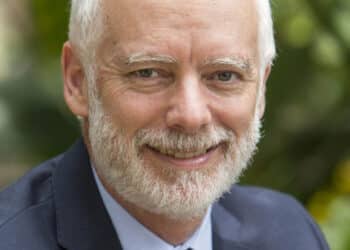Shaun Backhaus, director of DBA Lawyers, said Section 71 of the Superannuation Industry (Supervision) Act uses the word “loan” in its definition, and this has a wider meaning concerning superannuation law.
“In SMSFR 2009/4, the definition of loan expands the term substantially beyond the traditional meaning of loan, which involves a payment and repayment,” he said.
“There’s this acknowledgement that the normal meaning is that principal payment and repayment obligation, but this expanded meaning includes lots of other things such as arrangements not included or limited to lending of money, the sale of goods or land on credit, installment payment arrangements, and probably relevant [for SMSFs] arrangements to the deferral or payment of debts or entitlements, which includes unpaid present entitlements (UPE).”
He said that although the outcome of the Bendel decision is “the idea” that the commissioner’s view on the meaning of loan is somewhat in doubt, this is relevant to SMSFs investing in unit trusts.
“Investing in trusts is fine, but the way the law works in this particular aspect, with loans from the SMSF sector, the unit trusts perspective and UPEs is complicated,” Backhaus said.
Backhaus explained that for an SMSF that’s invested in a unit trust, such as a related unit trust, and in which there might be another related discretionary trust investor, the unit trust pays distributions each year as normal.
“The SMSF is presently entitled to those, and it doesn’t pay the actual amount. There are UPEs existing over financial years which is pretty normal. However, you have to consider whether this is a loan?”
He continued there are different perspectives to consider regarding this question – from an SMSF perspective, whether it a loan for the SMSF trustee and from the unit trust perspective it is very relevant because for the related unit trust it is best that it be a non-geared unit trust, which means it can’t borrow money.
“The SMSFR 2009/3 deals with these issues. So again, you want that unit trust to be a non-geared unit trust so it meets the conditions in Reg 13.22C and D, which say a unit trust cannot ‘have outstanding borrowings’ or ‘borrows money’,” he said.
“Take note that the regulation does not use term loan, but uses ‘borrowing’ which is a different term, and doesn’t have that extended meaning of loan that you find in the SIS Act. Therefore, financial accommodation of UPEs, assuming that is financial accommodation, that other meaning of loan, they won’t be a borrowing from the perspective of that unit trust. That’s really important, because if it did amount to a borrowing, if it said loan, it would trigger Reg 13.22D and you would have to dispose of that asset, and could never invest in it again.”
Backhaus said from the SMSF perspective, unless steps were taken to convert that to a loan the fund would give up the UPE entitlement such that it is a different entitlement, then that could be a borrowing from the unit trust, and would “blow up” the unit trust.
“However, in that in-house asset exemption, because it meets those conditions in the regulations, should be maintained, even if there’s UPEs outstanding.”
Other aspects should also be considered when looking at the in-house asset rules, he added.
“The ATO states that the unpaid amount the UPEs will itself become an in-house asset, if there’s a consensual agreement, because again, it meets that extended meaning of loan. This means that the commissioner accepts that in a majority of cases, the equitable right of the beneficiary to demand immediate payment would not fall within the definition of loan.”


